Carl Jung is my favorite historical figure, and I've spent a lot of time reading about him. I'd like to share some of the information about him and his ideas. More specifically, I want to discuss his concept of archetypes and the act of rebirth (which parallels Joseph Campbell's Hero's Journey in many ways).
Sorry for making so many longposts today. I've only had an hour of sleep, I'm having self-mutilation OCD thoughts, and writing is one thing I know that distracts me enough to stop myself from hurting myself. I've got enough scars to last a lifetime, I don't need anymore. Most of the information comes from Archetypes and the Collective Unconscious.
Carl Jung's background
Carl Gustav Jung was a psychiatrist who was born in Switzerland in 1875. Gerhard Wehr studies Jung's life and records much of it in detail in Jung, A Biography. His father, Paul Jung, was a Reformed Protestant vicar while his mother, Emilie Preiswerk, suffered from mental illness.
As a child, Jung had a deep interest in nature and, though he was surrounded by the church, he was unable to achieve any affinity for all the dogmatic side of religion. Don't let this fool you into thinking Jung didn't care about religion at all because his interest in the spiritual life of human beings was a lifelong pursuit. In 1895, Jung began attending the University of Basel where he enrolled in the medical curriculum. There, Jung proved himself to be quite the polymath. In addition to being influenced by the philosopher Frederick Nietzsche, he also familiarised himself with all the occult-spiritist literature. I wonder if he met witchcraft girls lol.
Jung's life took a turn when he picked up a copy of Richard von Krafft-Ebing's textbook on psychiatry, which motivated him to abandon his studies in medicine to pursue psychiatry. In this field, he would have a notable intellectual impact. His foray into psychiatry brought him into contact with many other fields of study including neurology, psychology, sociology, psychotherapy, and ultimately even philosophy.
Jung and Freud
Jung demonstrated himself to be a talented scholar, and he eventually caught the attention of Freud. Although they had their intellectual differences, Jung had great respect for Freud and Freud considered Jung one of his favourite disciples. Though Freud was usually a brisk man, he was warm toward Jung.
Despite the geniality between the two which lasted for seven years until it petered out, they had massive irreconcilable differences regarding their ideas on psychoanalysis. Jung, like many modern critics, was highly skeptical of Freud's overemphasis on the role of sexuality in human psychology (much like myself, I hate how horny Freud is). However, when Jung raised his objections, Freud refused to budge. Another point of disagreement was the fact that Jung, unlike Freud, had respect for the spiritual and paranormal realm. To Jung, there is no rational without the irrational.
It wasn't all disagreements. He, like Freud, believed in the unconscious. However, he did not conceptualize it as a psychic realm exclusively housing repressed or forgotten contents. This, according to Jung, only describes the “personal unconscious". There is a deeper layer of the unconscious Jung terms the “collective unconscious” which has “contents and modes of behavior that are more or less the same everywhere and in all individuals”. Let's delve deeper into this concept.
Jung's Archetypes
Featuring prominently in Jung's works is the idea of archetypes. Historically, the word archetype has been used to denote an ideal. For example, Jung cites Corpus Hermeticum, published in the third century, which describes God as the ‘archetypal light'.
When Jung uses the term archetype, he is referring to “‘primitive images” that serve as psychic counterparts to instincts. In much the same way that animals in the same species will inherit physical traits from their ancestors, so too are there psychic apparatus that are inherited in the form of archetypes. Are you still following?
These archetypes exist in the collective unconscious of the species and are not taught, meaning that they are not spread through tradition, language, or culture. What must be noted is that it is not the contents of the archetypes that are inherited, but rather it is the forms that are passed down. Thus, although similar archetypal forms can be found in disparate cultures around the world, how they manifest will differ.
Let's call this the end of part 1. In part 2, I want to discuss the rebirth archetype.
Jung and Rebirths
When Jung talks about rebirths, he is not talking about material death and resurrection. Instead, he is referring to psychic processes, but of course you probably already knew that. We're not discussing zombies. According to Jung, there are a few different types of rebirths, but the renovatio is the purest form of rebirth according to Jung, and it is centered on the transformation of the individual. You've seen this occur in stories. The hero learns something new, transforming them and making them worthy to face the monster. Within myths and religious narratives, such a transformation may come in the form of a human turning into a divine being (such as the ascension of Christ).
Humans seem to be very attracted to renovatio rebirths. It is a central aspect of Christianity, and Christians partake in it during mass when they eat the flesh and blood of Christ during communion. The resurrected flesh and blood of Christ are consumed by the participant, making them one with the rebirthed hero. Cool, but also yuck.
So what are the consequences of rebirths? The answer lies in personality. For example, one might unlock their animus or anima. The transformation of personality gives prominence to those traits that are characteristic of the opposite s*x. Jung also lists identification with a cult hero as a means of bringing about the transformation of the personality. This occurs when one identifies with a god or hero who transforms in a sacred ritual.
Perhaps most importantly, there is the natural transformation, which Jung also refers to as individuation. He claims that there are natural transformation processes that occur to us whether we like it or not, and whether we know it or not. In quite a Freudian fashion, he argues that these transformations announce themselves in the realm of dreams and that within dreams, one can find rebirth symbolism and dream symbols of the process of individuation. This rebirth, Jung argues, is often accompanied by an inner voice. The inner voice that facilitates individuation is sometimes characterized as a friend in religious narratives and myths. Campbell would call this the Helper.
Conclusion
I believe in Jung's theories, even the concept of racial consciousness. I love reading Jung's work and I think he is a very smart man. Next, I want to write about Stanislav Grof, a mad doctor who was inspired by Jung and gave his patients LSD. Bye for now, I'm going to go play Metal Gear Solid V.




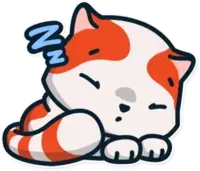






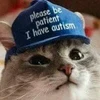
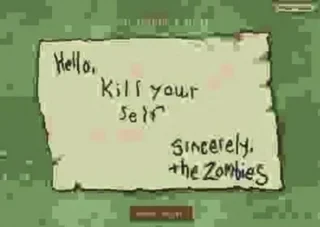
Jump in the discussion.
No email address required.
Jump in the discussion.
No email address required.
More options
Context
You should take a nap or something
Jump in the discussion.
No email address required.
Also I agree with this dude. Take a break from the adderall and get a nice meal in you. then maybe jack off. then go to sleep and sleep heavy.
also get out of South Africa
Jump in the discussion.
No email address required.
More options
Context
More options
Context
The Vedics of India spoke about rebirth aka reincarnation well before Jung ever did, and so did the great Greek philosophers with the concept of metempsychosis. So did the early Christians and the so called "apocryphal" gospels. Funny thing is ALL Catholics, Orthodox, and Protestants agree these books are invalid because of a committee that convened almost 2 thousand years ago even though they are so fundamentally different in terms of theology (I didn't realize that the Word of God is established by committee).
The personality aspect we are familiar with likely dies with the body, but the Soul lives on taking with it the experience and lessons learned in this life to the next. In the meantime going through a round of judgment where the Self judges the self and it's actions, thoughts, and feelings in the world (as described in the Egyptian Book of the Dead) during the selfs (small s aka ego) short period of incarnation
!historychads !catholics
Jump in the discussion.
No email address required.
More options
Context
I must say Tay is one of the very few women that look hotter in her 30s than in her 20s. Healthier weight.
Jump in the discussion.
No email address required.
i generally don't find her that attractive but that first picture is definite would territory
Jump in the discussion.
No email address required.
More options
Context
More options
Context
You mean brusque.
We can fix your shitty writing for you, but you'll have to fix your shitty brain yourself.
Jump in the discussion.
No email address required.
More options
Context
Wait, have you abandoned Holly to worship in the cult of Queen Tay like every other unoriginal white girl?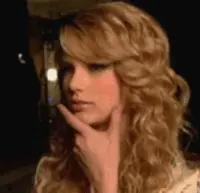
Jump in the discussion.
No email address required.
Jump in the discussion.
No email address required.
More options
Context
More options
Context
You know no one gives a shit about "effortposts" if they're bad, right?
Jump in the discussion.
No email address required.
More options
Context
I believe this. The more I listen to that inner voice to more I get better at life
Jump in the discussion.
No email address required.
More options
Context
it's like my shitme gayme tentsay games
Jump in the discussion.
No email address required.
More options
Context
Opinions on The Red Book / Liber Novus?
i think i read like a 3rd of the english section a year or two ago. somehow i cant find the giant thing anymore lmao, it isnt in the """library""" so im clueless about it now :(
and i barely remember itwill probably show up randomly though i spose. it had interesting art, for sure.
Jump in the discussion.
No email address required.
More options
Context
I can't lie, reading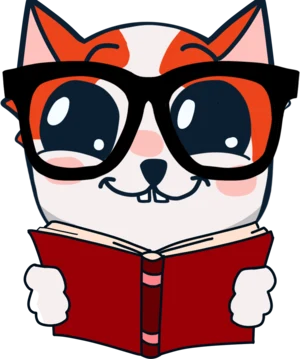 longposts is definitely better
longposts is definitely better 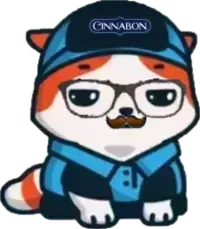 with some hot ladies every couple
with some hot ladies every couple 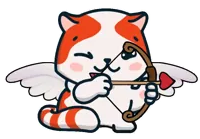 paragraphs
paragraphs
Jump in the discussion.
No email address required.
More options
Context
Post more tays next time
Jump in the discussion.
No email address required.
More options
Context